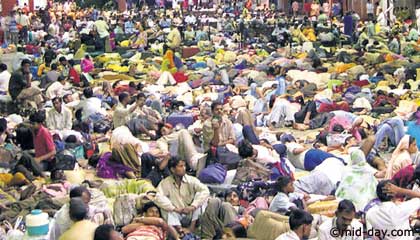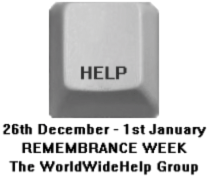I have been watching images on various news channels showing the devastation left behind by Katrina.
I have been following Maitri’s blog on the more personalised aspect of surviving Katrina.
And one thing struck me - however developed you may be, how ever well trained your response teams may be, when it comes to dealing with Nature’s fury - all that can be achieved is minimisation of damage. not much else.
With something like Katrina - the last one week has been “Katrina is coming” news all over the place. Evacuation has been in full swing. Yet the loss of lives has been phenomenal. Property destruction was anyway a given, nothing that could be done as far as houses or vehicles are concerned.
One of the things i do like about the MSM in the US, is their ability to highlight the positive, instead of finding just the negatives to shout about. In that sense the media in Mumbai, when it came to covering our own terrible Tuesday, was caught up in sensationalising rather than providing information. This an article from the NYT highlights rescue operations:
“If we come across a body floating?” Sgt. Chris Fisher of the Jefferson Parish Sheriff’s Office asked.
“Let it go,” Maj. Bobby Woods replied, as Sergeant Fisher and other rescue workers prepared for the day’s mission. “Let’s first go for life.”
There were policemen here too, ill equipped - who did much the same. But, there was no highlighting of the positive, until much, much later. Only the cacophony of ‘you should have’, ' you f***ed up. Even today there is so much of finger pointing and so much of negativism that it is quite difficult to get past the negativism and move on to do something constructive.
Maybe, it is time that the press in India realised that they don’t just have a responsbility to the bottom line of their newspapers. They also have have societal responsibility. And maybe it is time that they grew up to the maturity challenge.
Here is a much more developed nation, with a finely trained disaster management system, where evacuation of people had began earlier. And yet, on the day, there wasn’t a thing that could be done to prevent mayhem. And reports talk about weeks before people can go back to normalcy. I am not saying that we need to let up on Government inefficiencies, but there is a time when we need understand that there is only so much that can be done in a given situation. And all these recriminations of ‘you should have’ needs to give way to a slight degree of balance. We seem to like to score points. They leave that till later - after the calamity has passed and life goes back to normal.
Like in the case of Mumbai, part of the problem seems to be greed - and the ability of business and Government to stand by and rape the environment without any thought of the consequence.This a readers’ opinion from the NYT:
Upstream levee-building has also had the effect of turning a sluggish river into a fire hose, helping to destroy marshes and barrier islands that once provided some protection. The steady destruction of coastal wetlands by residential development and years of oil and gas drilling hasn’t helped much either. The combination of subsiding land and rising seas has put the Mississippi Delta about three feet lower than it was 100 years ago.
I guess that the Free Market is not as free as we think. Sometimes the price tag is so high that generations to come end up paying for it.
The one thing that we didn’t get to see on terrible tuesday here, which unfortunately seems to be happening in New Orleans is looting.
This is not the first time that one has seen pictures like this come out of the west. We saw similar pictures out of Gujrat during the riots. And, at a very primal level it is scary. The break down of civil society as we know it.
I hope that people there are as safe as they can be. That they get back and resume a normal life, as soon as possible. That they are reunited with their families and loved ones soon. All that we have in a time like this is hope.
cross posted on a POV

 Last year, on the 26th December, an earthquake, and then a tsunami, killed, wounded, or impoverished hundreds of thousands of people in South Asia.
Last year, on the 26th December, an earthquake, and then a tsunami, killed, wounded, or impoverished hundreds of thousands of people in South Asia.